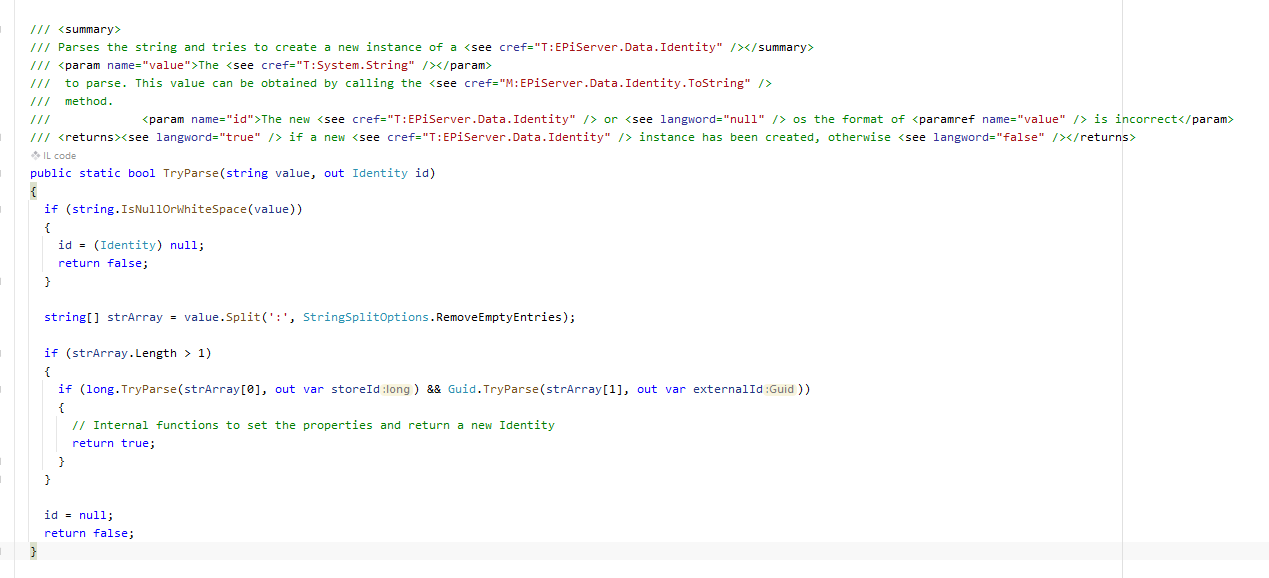Don't miss out Virtual Happy Hour this Friday (April 26).
EPiServer.Data.dll -> Identity.TryParse method doesn't prevent a crash whilst we expect it to
I'm not sure what you meant but Guid.TryParse for example has the internal try/catch. The premise of TryPrase is to not throw exception (instead just return false), and I think Identity.TryParse does just that. Did I miss something
Hello Quan,
You're right, though my comment remains the same. When you look under the source code of .NET regarding the TryParse method of Guid, you see that there's a lot being done before going under a try / catch clause, suggesting that Microsoft found it might be possible this part could crash under certain scenarios.
My point is, under Identity.TryParse, there's clearly a way for Optimizely to parse the string without even try catching at all. So, instead of calling "new Identity(string)", the TryParse method could do the following instead:

Hopes it helps understand my concern.
Thank you!

Hello,
We expect any TryParse to prevent a crash under the application, since .NET uses this standard for all other functions, like int.TryParse or Guid.TryParse. To our surprise, Identity.TryParse does not and uses a try / catch clause, which defeats the purpose of TryParse:
Could Optimizely's team look at that please?
Thank you!